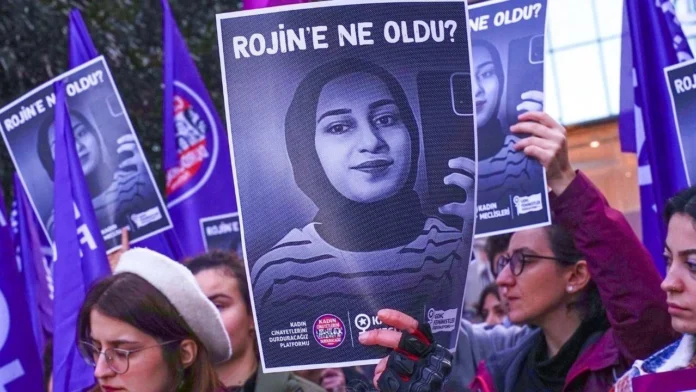Turkish authorities have opened investigations into journalists reporting on the suspicious death in 2024 of university student Rojin Kabaiş and have blocked access to coverage of related protests amid growing public outrage, the Birgün daily reported.
Kabaiş, a 21-year-old student at Yüzüncü Yıl University in the eastern province of Van, went missing after leaving her dormitory on September 27, 2024. Her body was found 18 days later on the shore of Lake Van, nearly 18 kilometers from where she disappeared. The initial autopsy report listed her cause of death as asphyxiation and identified two male DNA traces on her body. An updated forensic report released 10 months later confirmed that the DNA traces were located on Kabaiş’s chest and vaginal area, intensifying the suspicions of sexual assault.
As public pressure grows, DİSK Basın-İş, a labor union representing media workers in Turkey, announced that five journalists are under investigation or have faced blocs of their social media accounts for reporting on Kabaiş’s death or sharing related posts on social media.
Among them are Öznur Değer, a news editor for the pro-Kurdish JINNEWS agency, and reporter Dilan Babat, who are accused of “publicly disseminating misleading information” for publishing a report on October 21. Access to a report on the Kurdish Amed Times news website was also blocked. The X accounts of journalists Kadir Cesur and Ruşen Takva were suspended, while access to relevant posts by journalist Adnan Bilen has been restricted.
“These actions target not only journalists but also the public’s right to information,” DİSK Basın-İş said in its statement. “Despite all these restrictions, we stand with journalists who work tirelessly to uncover the truth. Journalism is not a crime.”
The Freedom of Expression Association (İFÖD) reported that access to news articles covering student protests at Van Yüzüncü Yıl University, where demonstrators have demanded a thorough investigation into Kabaiş’s death, has been blocked. The restrictions were imposed by the Van 2nd Criminal Magistrate of Peace, citing “national security and public order,” at the university administration’s request.
Violence against women is a chronic problem in Turkey. According to the We Will Stop Femicide Platform (KCDP), a leading women’s rights organization in Turkey, at least 394 women were killed by men in Turkey in 2024. Twenty women were killed by men in September alone while 22 others died under suspicious circumstances, according to the same group.
According to Expression Interrupted, a press freedom monitoring group, 28 journalists are currently behind bars in Turkey. The country’s deteriorating media landscape was further pointed out in the 2025 World Press Freedom Index published by Reporters Without Borders (RSF), where it was ranked 159th out of 180 nations.















